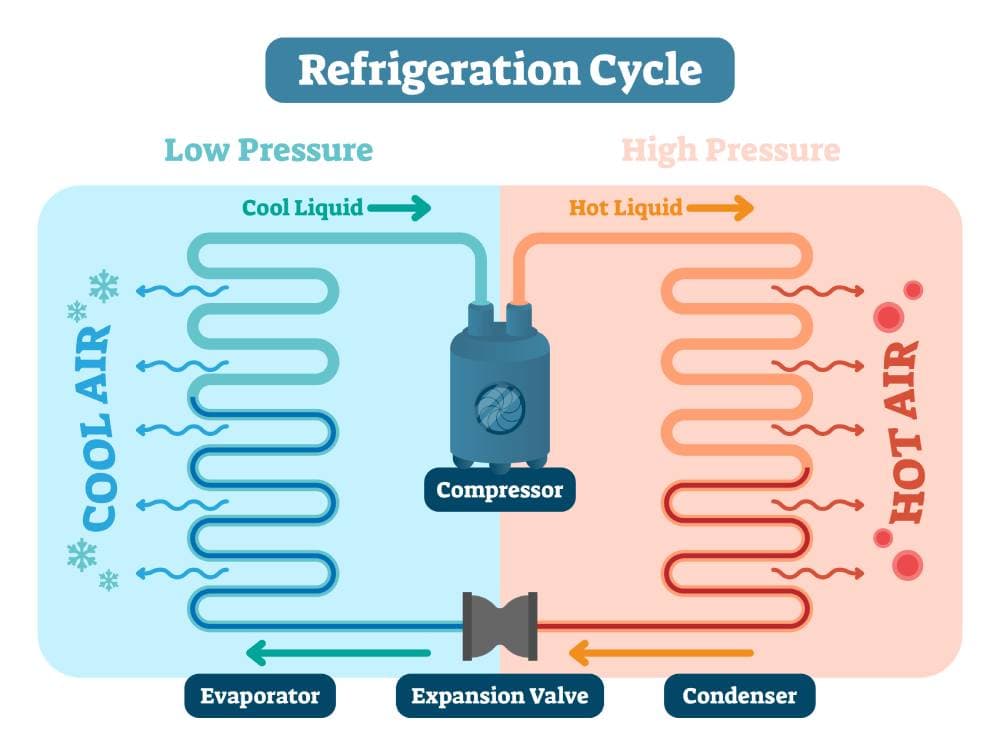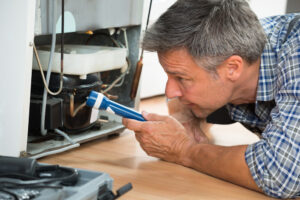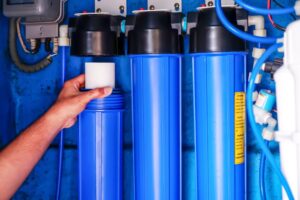If you own a cruiser, yacht, or boat, you know all too well the importance of keeping your refrigeration system running in tip-top condition. But have you ever stopped to wonder what role the compressor plays? It may seem like an insignificant part of this vital system, but it’s not!
The compressor is incredibly important to ensure that food and beverages stay cool and fresh, no matter how far out at sea your vessel takes you. Today we will review exactly what the compressor does in a refrigeration system so that you can be sure yours always works as efficiently and effectively as possible.
What Are the Components of a Marine Refrigeration System?
The marine refrigeration system comprises several components, all of which work together to ensure that food and beverages remain chilled. The main parts include:
Compressor
The compressor is the core component in any refrigeration system as it compresses the refrigerant into a high-pressure gas. This higher pressure allows the heat energy stored within the gaseous form of the refrigerant to be released when needed. This is the process by which heat energy is removed from the interior of a refrigerator, thereby cooling it. Without this compressor, your chilled items would not remain cold for very long.
Condenser
The condenser is a refrigeration system component that converts the hot, high-pressure gas produced by the compressor into a liquid form. This is done by transferring heat energy from the refrigerant to the surrounding air, allowing it to cool and condense back into a liquid.
Receiver
The receiver is a storage tank that holds the liquid form of the refrigerant until it is ready to be converted back into a gas and returned to the compressor. It is important to note that some systems may not require this component, as the condenser and evaporator can be connected directly.
Drier
The drier is a small filter that removes moisture and contaminants from the liquid refrigerant before it enters the evaporator. Removing these ensures that the system is operating more efficiently and with less risk of damage to its components.
Solenoids
The solenoids are electrically operated valves that regulate the flow of refrigerant in and out of the evaporator, allowing you to switch between cooling and heating modes. This helps ensure that the temperature inside your refrigerator stays consistent, no matter what type you use.
Expansion valve
The expansion valve is a device that reduces the pressure of the liquid refrigerant so that it can evaporate into a gas more easily. This allows the heat energy stored within this gas to be released and used to cool down the interior of your fridge.
Evaporator unit
The evaporator is where the actual cooling occurs, as it is responsible for absorbing heat energy from the air and transferring it to the refrigerant. As the refrigerant absorbs this heat energy, it evaporates into a gas. It is then returned to the compressor, where it can be re-circulated throughout the system and start again.
Refrigerant
Refrigerant is the substance used to cool down a space, and it runs through all of the components of the refrigeration system. It usually comes in the form of gas when it enters the compressor, but then it converts into a liquid as it passes through the condenser before finally turning back into a gas in the evaporator. It is responsible for absorbing the heat energy from the inside of the fridge and transferring it outside, where it can be released into the atmosphere.
How Do Compressors Work In A Refrigerator?
Compressors are the main component of any refrigeration system and are responsible for providing the pressure needed to circulate the refrigerant. A compressor works by increasing the pressure of the vaporized refrigerant, thus allowing it to absorb heat energy more efficiently from its surroundings.
The Importance of the Compressor

The compressor’s role in a refrigeration system is incredibly important, as it compresses the refrigerant and releases any stored heat energy. Without it, there would be no way to keep food and beverages chilled on board your vessel. The type of compressor used in a marine refrigeration system will depend on its specific requirements – most commonly, a reciprocating single or two-stage compressor is used.
By understanding how compressors work in a refrigerator, you will be better equipped to spot any issues with your marine refrigeration system and take action quickly. Regular maintenance ensures that your compressor continues working efficiently and effectively for years.
Make Sure Your Refrigeration System Is Reliable
The importance of reliable and efficient marine refrigeration cannot be overstated, especially on long voyages. Cruise RO Water and Power offers a range of boat refrigeration systems with the highest quality components and parts, so you can trust that your vessel will be properly equipped to store food safely at all times.
With our experienced team of engineers and technicians, we guarantee that you will get a reliable system that meets your requirements. Contact us today to find out more about how our compressors can keep your boat cool!




